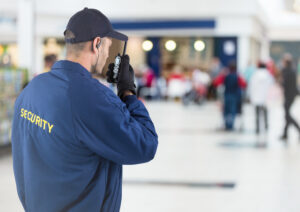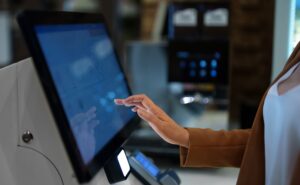RSS Intel
Security insights, industry trends, and what’s cooking at RSS.

Interview with a Director: Jen Sparling on Leadership and Growth
Jen Sparling has been with RSS since its founding, sharing her journey, leadership insights, and perspective on the evolving security industry.

What is Organized Retail Crime? What Every Retailer Needs to Know
Organized retail crime is on the rise—understanding the threat, why it’s growing, and how retailers can fight back.

Meet the Night Security Coordinator Team: Our Experts Answer Your Burning Questions!
Meet the RSS night operations team— the dedicated crew keeping clients safe and secure while the rest of the world sleeps.

Why Hire a Security Guard for Your Business?
Security guards do more than watch— they proactively prevent theft, protect employees, and ensure a safe, welcoming shopping environment.

The Rise of Self-Checkout in Retail: Analyzing Pros and Cons Amid Escalating Challenges
Self-checkout offers speed and savings, but efficiency comes with risk; creating new challenges in theft prevention and protecting profits.

Hurricane Checklist for Security Guard Companies: Ensuring Safety and Protection During Severe Weather
During hurricanes, security personnel play a critical role in protecting people, property, and operations while managing risks and coordinating emergency response.

Keys to Preventing Shoplifting – Part 1 | Time is Money… Lost!
Understanding when and where shoplifting happens empowers retailers to prevent theft and protect revenue.

Thinking Outside the Box: Creative Solutions for Retail’s Loss Prevention and Shrink Challenges
Innovative approaches to loss prevention are transforming how retailers can stay ahead of theft and reduce losses.

Securing the Retail Environment: How Security Guards Can Combat Organized Crime
From surveillance to intelligence gathering, security guards are key to preventing organized crime in retail environments.

Another Successful PRS, RSS, RMS “Back To School Supply Drive” 2020
Jen Sparling has been with RSS since its founding, sharing her journey, leadership insights, and perspective on the evolving security industry.

William Floyd School District Gets All Angel Tree Gift Requests Fulfilled, Thanks to Three Long Island-Based Companies
Jen Sparling has been with RSS since its founding, sharing her journey, leadership insights, and perspective on the evolving security industry.

Three Long Island Companies Unite To Feed 2500 Suffolk People This Thanksgiving
Jen Sparling has been with RSS since its founding, sharing her journey, leadership insights, and perspective on the evolving security industry.
